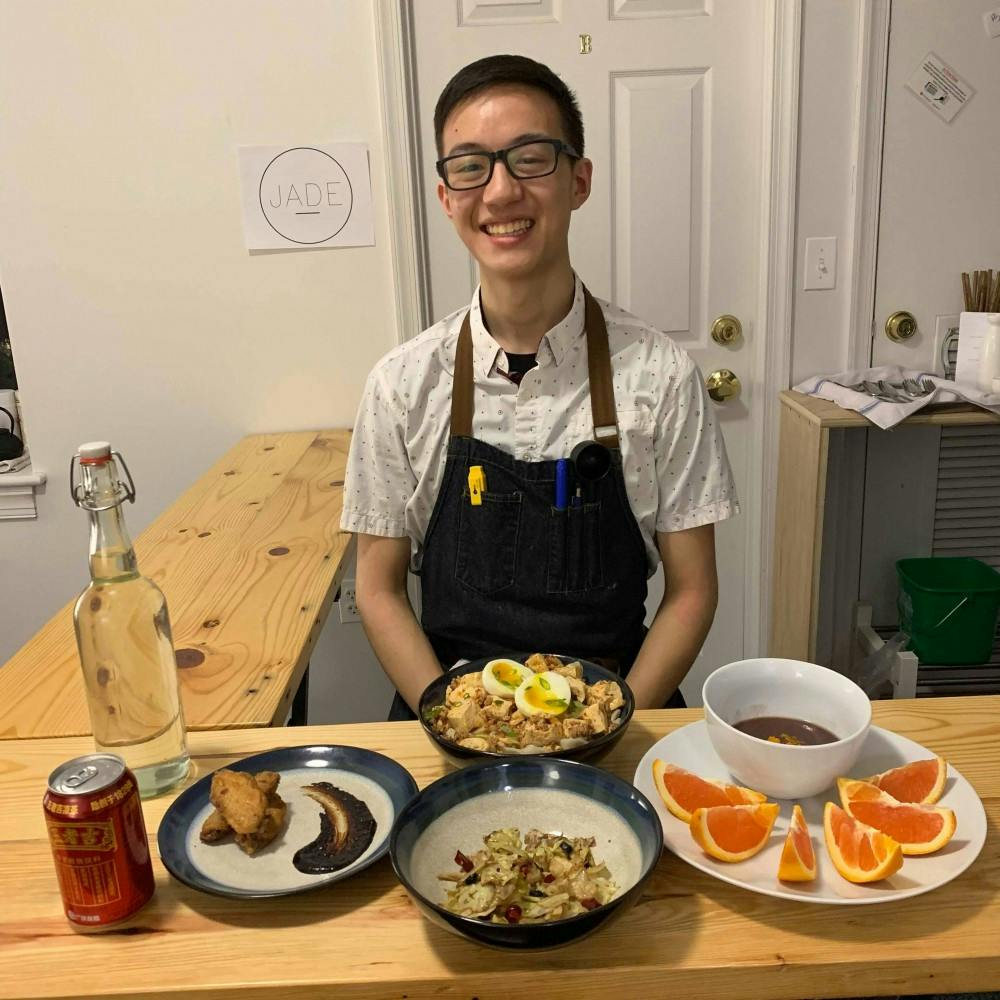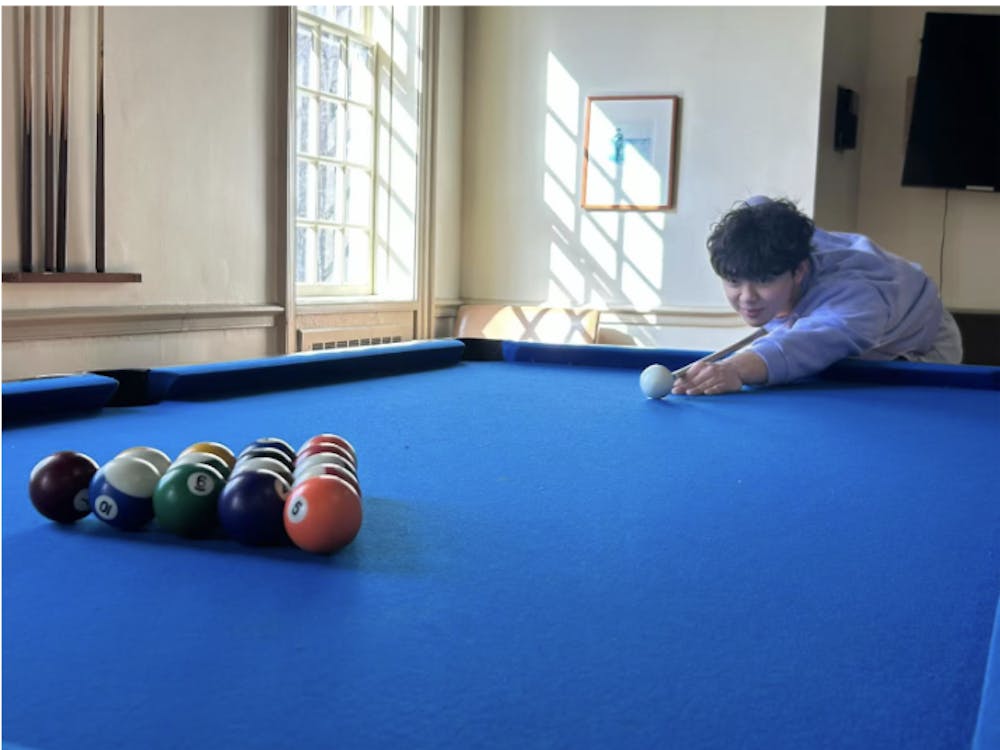Student entrepreneurship is a key aspect of what makes a college experience special. Beyond the classes and specialized knowledge for the typical college grad careers, entrepreneurship allows us to pursue hobbies and interests that aren’t necessarily related to our studies and have commercial potential.
I have always loved cooking for myself and other people. It was only when I came to Hopkins that I had the full autonomy to explore that creative interest in a professional setting. So I began interning at a restaurant in Hampden. I started Jade, a pop-up food concept serving dinners and snacks to students on campus, as a way to improve my skills as a cook and to tell my Chinese-American story through food, fostering communal gathering at a school with a workaholic, fast-paced “go” mindset. I became ServSafe certified, gaining formal training on safe food practices and public health concerns.
As a pop-up concept, Jade can take on many forms, whether it is me hosting private dinners or public pop-ups in certified restaurant spaces. Jade had a public Facebook page to showcase what I was doing, but the only people allowed to come to my place for dinner were people I had personally approved of in a separate closed Facebook group.
I launched Jade on Feb. 24, and opening night was a success. But as I was planning the next private dinner, I received a phone call from the residential director, informing me that he received a report that I was conducting a business from my on-campus housing. I was asked to shut it down.
Hopkins has an anti-dorm business policy under Marketing and Solicitation in the Living at Hopkins guidebook. A violation of this policy constitutes a violation of the Student Conduct Code, and I was subject to disciplinary action, ranging from a formal warning to housing contract revocation and suspension. With my academic and professional life at risk, I chose not to fight the administration and to simply write a required four-page reflection paper on my violation of University policy.

This isn’t the case at many peer institutions. At Yale, a student who would like to “undertake or organize commercial enterprises on campus” would have to contact a University official. While it is not optimal, this policy fosters a much more collaborative relationship between student entrepreneurs and the administration.
At Carnegie Mellon University, “unauthorized solicitation and/or sales are expressly prohibited,” but students can obtain written authorization from the director of Housing Services to sell products or solicit business within residence halls. At Stanford, revenue generation that is “unrelated to educational events” is prohibited, but there are “certain activities which might at first appear to be unrelated, but which, under scrutiny, are in fact related... or provide direct support to Stanford’s academic missions... such as food sales...”
Other universities, like Hopkins, have strict policies against on-campus business. Jonah Reider operated his supper club Pith out of a dorm room at Columbia and got kicked out for doing so. But the school has had much to gain from Reider being covered by national giants such as The New Yorker, the New York Times, chef Ruth Reichl, the Wall Street Journal and Forbes. Reider rekindled Pith after graduation, and he has since expanded his portfolio, adding Pith After School, a program that teaches cooking to local middle school kids.
The Marketing and Solicitation policy at Hopkins makes it nearly impossible for student-entrepreneurs to execute their ideas. About half of the student population is required to live on campus. As Hopkins students who already have academics to worry about, we must find an efficient way to move our ventures forward. Home — the place where we spend much of the day — should not be off-bounds.
In recent years, with the advent of student-run nonprofit TCO Labs and the new space in Remington for FastForward U, the University has become more entrepreneurship-friendly. Still, the University can do better. Consulting with TCO and earning a Spark Grant from FastForward U is not enough to make my venture successful. Revoking the Marketing and Solicitation policy would do much more to help me realize my ideas than all of the entrepreneurial resources the University currently has to offer.
It’s important to note that the Marketing and Solicitation policy is not the only obstacle for entrepreneurs. The University also has a non-compete agreement with Bon Appétit Management Company, meaning no outside organizations can serve food within or on the premises of a Hopkins facility. As for general commercial policy, “the use of University resources, such as, but not limited to, e-mail, listservs, newsgroups, websites, or the Internet to advertise or solicit sales is strictly prohibited.”
Hopkins is currently unwilling to invest in the next generation of small-business owners and community members. Unlike a student researcher who can take full advantage of a variety of University resources and opportunities, a student entrepreneur like me fights the lack of opportunity on campus and must struggle against University policy to succeed.
Elite universities like Hopkins and Columbia must do more to foster a young community-minded population. The first step here at Hopkins is to remove barriers like the Marketing and Solicitation policy and to streamline bureaucratic hoops to support student ingenuity.
Jesse Wu is a sophomore majoring in Biomedical Engineering. He is a staff writer for The News-Letter.

















